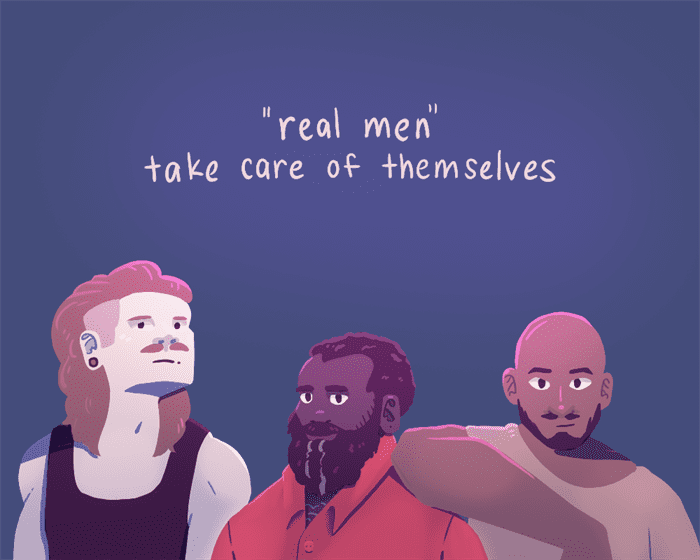Men, despite only making up just about less than half of the United States population, accounted for close to 80% of suicide cases in 2020 alone. This statistic is jarring and often overlooked when it comes to conversations about masculinity and mental health among other poignant and focused wellness efforts.
We, at The Montclarion, want to bring focus to this intrapersonal epidemic in hopes to provide a nuanced and valuable understanding of National Men’s Health Awareness Month, or as it’s better known, Movember, and the vital role that conversation and comprehension have in shaping perceptions of often socially taboo, overlooked and underrepresented male-centric health topics.
Movember as an organization and global movement focuses on, “changing the face of men’s health,” by using the mustache as a symbol of empowerment while providing informational and creative campaigns to shed light on the importance of checking in on friends, positive masculinity, the dangers of toxic masculinity, mental health advocacy and male-oriented cancer screenings.
Male-oriented cancers are one of the forefront issues of note. The most commonly diagnosed cancer in college-aged men is testicular cancer. In fact, a member of our editorial staff is a survivor of the disease himself. Fortunately, however, this is notably one of the most treatable cancers with only about 500 deaths a year in the United States.
Despite the seemingly low death toll per year, that doesn’t minimize the risk and danger present in a testicular cancer diagnosis.
A number of these deaths come from internalized stigmas and social taboos stemming from patriarchal toxic masculinity. Such social constructs prevent men from opening up, seeing a doctor or sharing with a loved one when something may feel unusual to their body like a lump or newfound pain.
There is a level of societal pressure and stigma which men often unconsciously abide by which stretches across and dampens the wide range of important and life-saving actions and activities available to limit or prevent cancers and suicidal thoughts or actions.
Easy but often overlooked methods such as self-screening for a range of male-centric cancers such as prostate or testicular cancer in addition to actively searching for mental health support are proven ways to stay ahead of the curve and promote positive masculinity.
Here on campus, there are a range of resources at one’s disposal if you are in search of aid for one or many differing aspects this Movember.
First and foremost when discussing the notion of mental health it is vital to cite the existence of the Counseling & Psychological Services (CAPS) located on campus and the readily available appointment-based therapy or drop-in “Let’s Talk” sessions offered.
Additionally, there is the Health Promotion Center which serves the student body with available sexual wellness information and resourceful content related to overall mental and physical health opportunities.
Notably too, of course, the University Health Center is a vital space that services the campus population with ranging outpatient care such as diagnosis, STI screening, contraceptives and immunizations among many other resources. One of those, and the most important as of this month, is the available focused and specific men’s health screenings and consultations provided by the University Health Center.
All of these resources, as well as those present off campus, are significant first steps toward embracing and acting on positive masculinity. Movember is an amazing movement that has provided many opportunities and lifelines for men seeking a sense of community and empowerment amongst themselves and other male peers.
Take this month in stride and abandon any potentially unconscious toxically masculine traits and tendencies. Support your fellow male-presenting friends, colleagues and partners and grow a mustache, talk with your peers, speak with a professional, self-screen for easy-to-spot cancers and love yourself just a little bit more this November.



